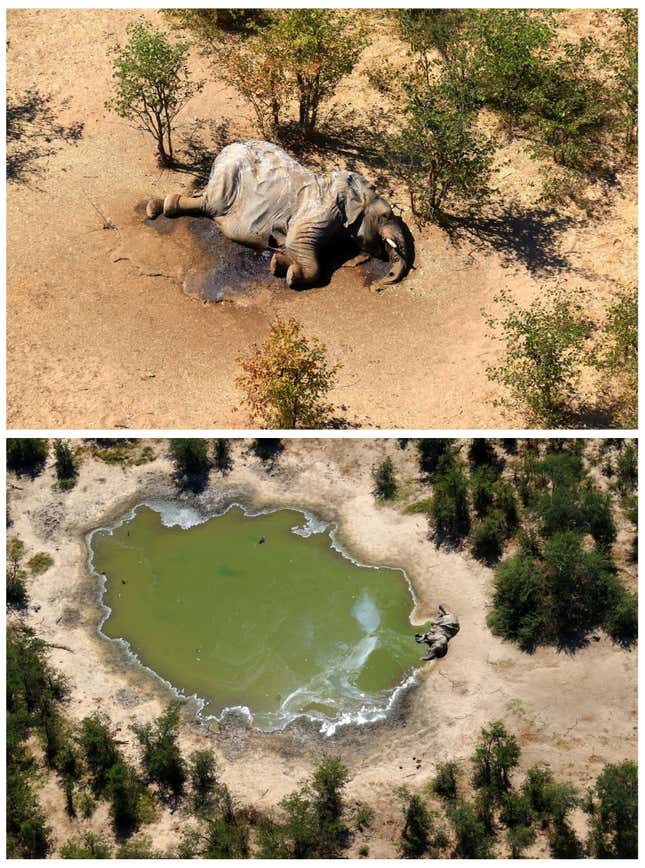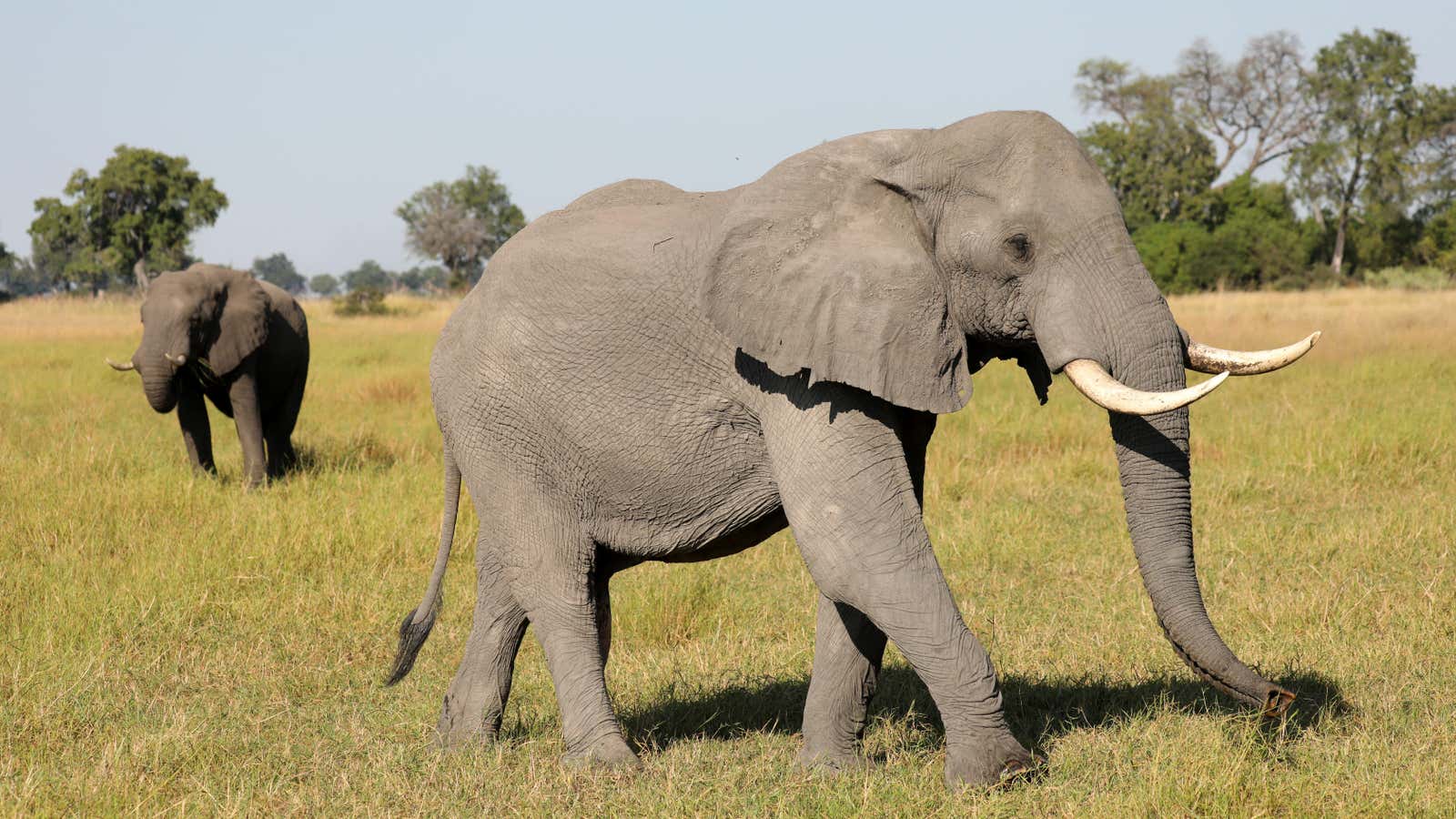Veterinary scientists have confirmed that a bacterial toxin other scientists say is thriving more because of warming temperatures in water bodies as a result of climate change is the cause of massive elephant deaths in Botswana this year.
The death toll of elephants in the southern Africa country has subsequently risen to 330, with Monday’s announcement by its Department of National Parks and Wildlife confirming the elephants drank water contaminated by cyanobacteria. The research findings, building on tests conducted in laboratories in Zimbabwe, South Africa, the US, and Canada, represents a ground-breaking and until now elusive scientific explanation that could also provide answers to the yet to be explained deaths of more elephants in neighboring Zimbabwe.
Botswana first discovered carcasses of elephants along the wildlife rich Okavango Delta in May and June but was authorities were uncertain as to the cause of the mass deaths, leaving scientists and conservationists puzzled. Only last month, Zimbabwe’s Parks and Wildlife Authority said more than 20 elephants had also died in its massive Hwange National Park although this time there was a clue that the deaths could have been caused by bacterial infection after ruling out anthrax and poisoning by poachers.

Tests detected “cyanobacterial neurotoxins” in the waters of the Okavango Delta within the areas where the elephants were found dead. Climate scientists have been warning about the impact of heating up temperatures on earth including creating environments conducive for the presence of cyanobacteria which favors warmer water temperatures.
Temperatures have been rising in sub-Saharan Africa, with countries in the Southern African region suffering prolonged droughts in recent years. Botswana’s research findings into the deaths of 300 of its elephants could be useful for scientists and conservationists as they re-think their approach and strategies to wildlife conservation and environmental management.
Botswana holds nearly a third of Africa’s elephant population while Zimbabwe’s elephant population, decimated by poachers, has been described as unsustainable as it outstrips available habitat, further risking any conservation interventions.
Sign up to the Quartz Africa Weekly Brief here for news and analysis on African business, tech, and innovation in your inbox
